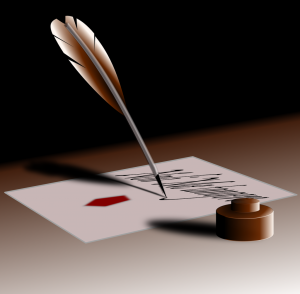At the moment of your birth you began to receive impressions of the world you were born into. The impressions were environmental—the emotional feeling, tone that surrounded you—and physical—touch, sound, sight.
At the time of your birth your brain hadn’t yet developed sufficiently to record your experiences in any other way. But you were recording your responses nonetheless. Those impressions were arising from both the external world around you as well as what was going on inside of you. Your experiences were pre-verbal, that is to say pre-cognitive, and they were already beginning to form what will become the unconscious “ghosts of childhood” aspect of your life experience.
So your life, as is everyone’s, is a composite of your more mature conscious awareness and your unconscious content—the impressions that were recorded beneath the level of your awareness throughout your whole life.
During your infancy up to about two years old your child’s brain cannot distinguish between inside and outside. It’s all one and the same. But as you grow that distinction becomes more apparent and is often very frustrating leading to what some parents call “the terrible twos.”
But what’s actually happening is that the child’s brain is growing in its ability to distinguish between “me” and “not me” and a rudimentary self is emerging.
What’s important here is that the early and ongoing unconscious impressions can grip and hold you, resulting in feelings, impressions, and behaviors that, although they are yours, are not wholly within your conscious control.
Just think of a time when you did something or said something that surprised you. It’s quite common for people to say things like—”Where did that come from?”, or “I can’t believe I said that”, or “I didn’t realize I was doing that”.
For another example—have you ever been driving and when you reached your destination you couldn’t remember how you got there?
Or have you ever walked into a room and couldn’t remember what you were doing there?
These experiences are evidence that there is more to your behavior than meets your conscious awareness.
Many people feel the need to change their lives but discover that it isn’t as easy as it sounds. Lose weight. Begin a project. Change how they feel about something. But they feel gripped by internal “forces”—the Ghosts of Childhood—that have more control than your conscious intentions. These unconscious forces, what’s called unconscious content, can be far stronger than whatever they have set out to do. It’s a common experience—when have you experienced this stuckness?





